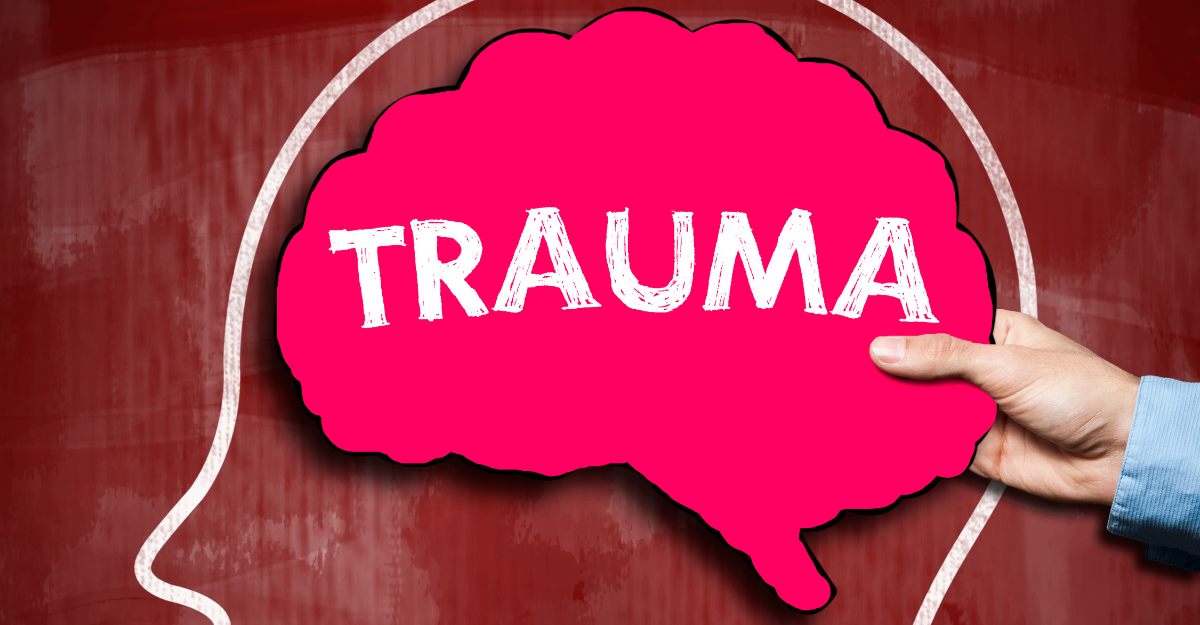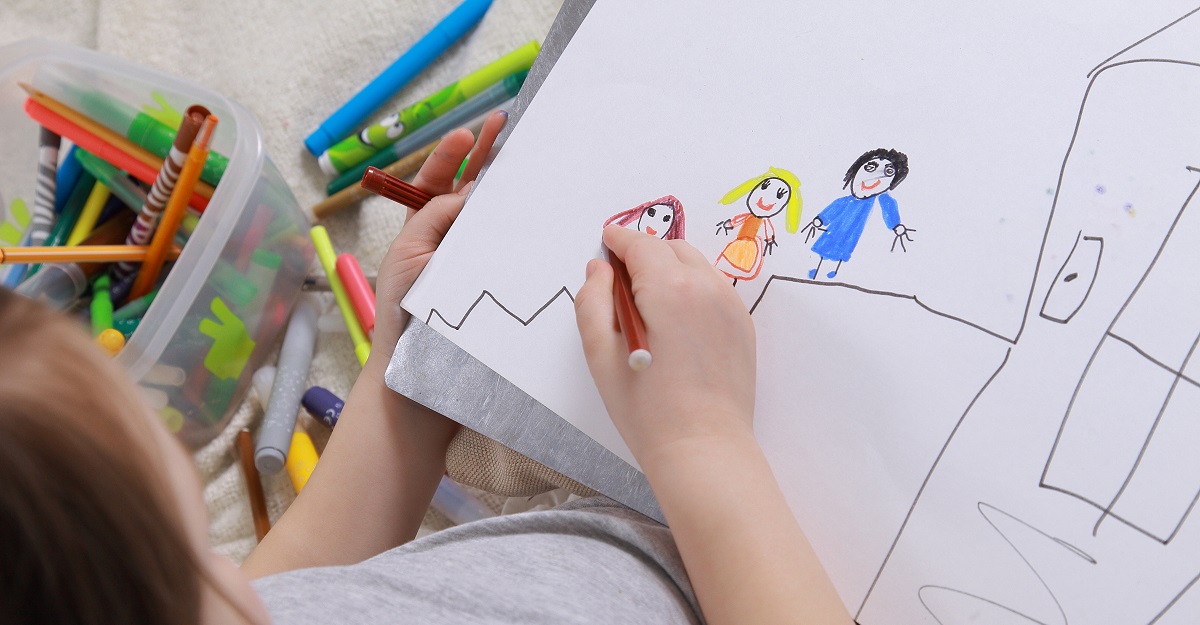9 Signs You Need Trauma Therapy
Published By Justin Baksh, LMHC, MCAP
September 18, 2023

We all experience stressful, unpleasant and scary situations in life. Trauma occurs when our ability to cope is overwhelmed by an event (or a series of events) where we witness or experience physical, emotional, or life-threatening harm. The resulting trauma can be likened to an emotional wound, leaving a lasting imprint on a person’s mental, emotional, and even physical well-being.
Trauma can stem from a single occurrence, such as a car accident, or from ongoing situations like abuse or prolonged exposure to stress. It’s not solely the event itself that defines trauma, but how it’s experienced and processed by the individual.
Some people might experience trauma after witnessing something horrifying, while others might feel it after losing a loved one or facing a personal crisis. The effects of trauma can manifest differently in everyone, leading to symptoms like anxiety, depression, or unexplained physical ailments.
In a way, trauma can be thought of as a deep emotional scar that needs proper care and attention. Just like a physical wound, it requires time, understanding, and often professional intervention to heal properly.
It’s important to recognize that trauma is not a sign of weakness or failure. It’s a natural human reaction to extraordinary circumstances, and acknowledging it is the first step toward healing.
How Prevalent is Trauma?
Trauma is an experience that is surprisingly common, yet often overlooked. According to the National Council for Mental Wellbeing, 70% of adults in the U.S. have experienced some type of traumatic event at least once in their lives.)
This widespread nature of trauma underscores the importance of recognizing its signs and seeking professional help when needed. The impact of trauma can ripple into various aspects of a person’s life, affecting mental health, relationships, and even physical well-being.
Early intervention and proper care can greatly reduce the long-term effects of trauma, leading to better overall health outcomes. Awareness of trauma is not just a personal matter; it is a societal issue that calls for compassion, understanding, and a concerted effort to support those who are affected.
By acknowledging the prevalence of trauma and promoting empathy and care, we can foster a community that recognizes the human experience’s complexities and takes proactive steps to heal and grow.
“I have post-traumatic stress disorder. When I speak to people and tell them I have PTSD, their usual response is ‘Oh, have you been in the army?’ I haven’t. I wish I could say I developed this condition through a far more heroic way of life, but I can’t.
The truth is I became seriously ill a few years ago and ended up having emergency surgery. This resulted in me waking up in the High Dependency unit of my local hospital with wires coming out of me from every angle and a colostomy bag attached to me…
The fact is I didn’t cope with the bag very well at all. I was embarrassed to talk about it, ashamed to feel it, horrified to see it beneath my ever-increasing layers of clothes vainly trying to cover it and I was disgusted to change it. The whole thing felt like a bad dream but unfortunately it wasn’t. Those were still to come.
I had the bag for about a year before another operation removed it; but not before the damage, both physically and mentally, were done. I had slowly, gradually, progressively gone from being an extrovert, a joker, the quintessential ‘life-and-soul’ to a prisoner of my own making.
I would make excuses not to go to family events, to a point were they wouldn’t even invite me. I even developed a new nickname from my brother ‘Grumpy’; he was only half-joking. I’d go to work and try and be as ‘me’ as possible but even that had to change. I turned down promotions because my self-confidence was gone. I was self-pitying, angry, short-tempered, nasty and just horrible to live with. The opposite of everything I’d always been.
I wore the mask of normality to the outside world but behind closed doors, when I got home with those who really knew me, the deterioration had well and truly started. In many ways, the times without the bag were even worse than having it. It was once the bag had been removed that I started to have the flashbacks commonly associated with PTSD.”
-Gary, My Experience of PTSD, Mind.org
Physical vs. Emotional Trauma
Trauma is a multifaceted response to distressing experiences, and it can manifest in both physical and emotional ways. Understanding the difference between these two aspects of trauma helps in recognizing the signs and seeking the appropriate care.
Physical Trauma
Physical trauma refers to injuries to the body, often caused by accidents, falls, or violence. This type of trauma can range from minor cuts and bruises to severe injuries like broken bones or internal damage. Some examples of physical trauma include:
- Car accidents
- Sports injuries
- Physical abuse
The healing process for physical trauma often involves medical intervention, rest, and rehabilitation. Professional medical care, including surgeries or physical therapy, may be necessary to address the physical wounds.
Emotional Trauma
Emotional trauma, on the other hand, pertains to the psychological impact of distressing events. It can result from experiences that are deeply disturbing or threatening to an individual’s sense of safety or well-being. Examples of events that can lead to emotional trauma include:
- Witnessing or experiencing violence
- Loss of a loved one
- Chronic stress or bullying
Emotional trauma may manifest in various ways, such as anxiety, depression, flashbacks, or difficulty in forming relationships. Unlike physical injuries that are often visible, emotional trauma’s scars may be hidden, making them more challenging to recognize and address.
Healing from emotional trauma often requires time, support from loved ones, and professional mental health care. Therapy, counseling, and self-care practices can be instrumental in recovery.
A Complex Relationship
It’s important to recognize that physical and emotional trauma can intertwine. A physically traumatic event like an accident can lead to emotional trauma, while prolonged emotional distress can manifest in physical symptoms like headaches or fatigue.
Understanding the difference between physical and emotional trauma is essential, not just for personal well-being but for supporting others. Compassionate recognition of these complex experiences encourages empathy, healing, and growth in our communities.
The Importance of Trauma Therapy
“For me there is no cure, no final healing. But there are things I can do to ensure that I never have to suffer as I did before being diagnosed with PTSD. I’m no longer at the mercy of my disorder and I would not be here today had I not had the proper diagnosis and treatment. The most important thing to know is that it’s never too late to seek help.”
-P.K. Phillips, My Story of Survival: Battling PTSD, Anxiety & Depression Association of American
The journey towards healing from trauma is often complex and deeply personal. Trauma therapy plays a vital role in this process, providing a structured and compassionate pathway toward recovery.
How Therapy Can Help
Therapy offers a space to explore the roots of trauma, allowing individuals to make sense of their experiences and how they have been affected. A therapeutic relationship provides emotional support and validation, which are essential components in the healing process. Trauma therapy focuses on healing the emotional injuries that result from disturbing events. Trauma therapists tailor treatment to the unique needs and experiences of each person, fostering a supportive environment for healing. Through various techniques, they help people build resilience, by teaching coping strategies, and helping individuals regain control over their lives. Therapy also encourages self-compassion and understanding, reframing trauma not as a failure but as a human response to overwhelming situations.
Destigmatizing Therapy: A Sign of Strength, Not Weakness
Unfortunately, societal misconceptions can create barriers to seeking therapy. It’s essential to for us to recognize that seeking therapy is not a sign of weakness, but a courageous step towards healing.
Seeking therapy requires strength and self-awareness. Recognizing the need for help and taking action is an empowering and brave decision. Education and open conversations about therapy can break down stigmas, making it more accessible for those in need. A culture that values mental well-being fosters empathy within communities, thus offering vital support and acceptance for those seeking therapy.
Recognizing the Need for Trauma Therapy
Recognizing the signs that indicate a need for trauma therapy is a vital step in the healing process. Here are the top nine signs that indicate a need for professional support.
9 Signs You Need Trauma Therapy
- Persistent Feelings of Anxiety or Depression: If anxiety or depression continues to impact daily life weeks or months after a traumatic event, it may be a sign that therapy is needed.
- Flashbacks and Nightmares: Recurring nightmares or flashbacks to the traumatic event can be highly disruptive and might indicate a need for professional help.
- Avoidance Behavior: Avoiding places, people, or activities that are reminders of the trauma can signal a deeper issue that therapy might address.
- Difficulty in Relationships: Trauma may affect relationships with family, friends, and colleagues. Struggles with trust or intimacy may require therapeutic intervention.
- Physical Symptoms: Unexplained physical symptoms like headaches or digestive issues might be connected to emotional trauma and benefit from therapy.
- Emotional Numbness: Feeling detached or emotionally numb may be a coping mechanism but might also signify a need for professional support.
- Substance Abuse or Other Addictive Behaviors: Turning to substances or addictive behaviors to cope with trauma might indicate a need for specialized help.
- Self-Harm or Suicidal Thoughts: Any thoughts of self-harm or suicide are serious signs that immediate professional intervention is required.
- Others Notice Changes in Your Behavior: Sometimes, friends or family might notice changes in behavior or mood that you might not see yourself. Their observations could be a valuable indicator.
How to Seek Help
It’s important to consult a mental health professional if you or someone you know is showing any of the above signs. As not all therapists specialize in trauma, look for someone with experience in this area so that you can get the specialized care you need. Also, think about what type of therapy feels right for you. Whether it’s one-on-one or group therapy, considering your comfort level is important. Lastly, ask for recommendations. Friends, family, or healthcare providers may offer recommendations for trusted therapists. Additionally, a quick online search can help you find local therapists specializing in trauma. Support groups and community organizations may also provide resources.
In the complex journey of healing from trauma, recognizing your worth and taking the brave first step to seek help is a testament to strength and resilience.
Remember, you are not alone, and your mental health is worth every effort. Seeking professional support is not a sign of weakness, but a courageous act of self-care and self-love. By reaching out for assistance, you’re paving the way towards recovery, growth, and a brighter future. You are worthy of healing, understanding, and the compassionate support that trauma therapy can provide. Your path towards healing starts with you, and it’s a journey filled with hope, courage, and empowerment.
- How to Manage Trauma – National Council for Mental Wellbeing. (n.d.) National Council for Behavioral Health.
- My experience of PTSD. (n.d.). Mind.org.
- Philips, P. K. (2019). My Story of Survival: Battling PTSD. ADAA.org.






